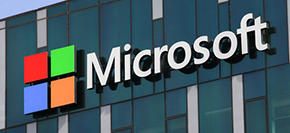Microsoft Addresses Employee Concerns, Defends Work with U.S. Military
Microsoft has strongly defended its work with the U.S. military, in response to a group identifying itself as “Employees of Microsoft” who want the tech giant to forego bids on the Pentagon’s $10 billion cloud procurement.
Microsoft President Brad Smith has responded, saying that Microsoft is proud of its long history of technology contracts with the Department of Defense, and will continue working to make sure the military has “access to the nation’s best technology, including from Microsoft.”
Smith added that Microsoft employees who want to switch teams can apply for other open jobs within the company, according to a blog article he wrote.
“We want the people of this country, and especially the people who serve this country, to know that we at Microsoft have their back,” he wrote. “They will have access to the best technology that we create.”
Microsoft also pledged to “engage as a company in the public dialogue” with the Defense Department and policymakers about ethical issues surrounding artificial intelligence, including autonomous weapons. By working with the military and government, Microsoft can be more directly involved in these ethics conversations, Smith wrote.
The opposition from the Microsoft employee group is just the latest episode in an ongoing ethical crisis within the U.S. technology industry.
Earlier this year, Google’s decision to provide artificial intelligence to Project Maven cost the company dozens of employees, who resigned in mass protest.
Additionally, Microsoft faced internal furor last spring and early summer over their contractual connections to ICE, as the agency was embroiled in the controversial separation and detainment of migrant children at the border.
Amazon has also faced criticism from employees and the American Civil Liberties Union over the marketing of its facial-recognition software, Rekognition, to law enforcement agencies.
The concept of lethal Artificial Intelligence is just one area where hundreds of tech workers are trying to influence corporate behavior and ethics by signing a pledge not to work on lethal autonomous weapons.








